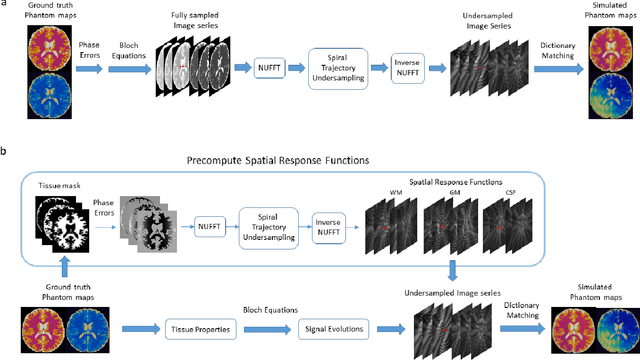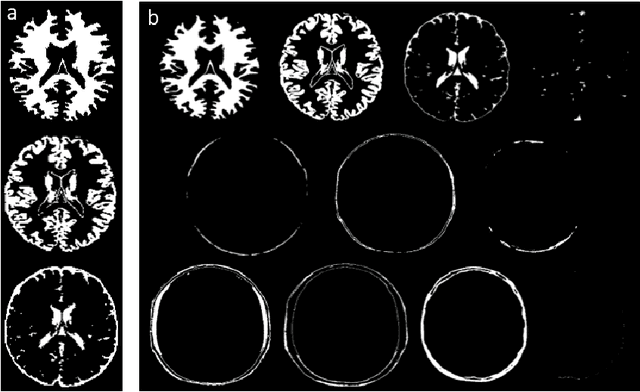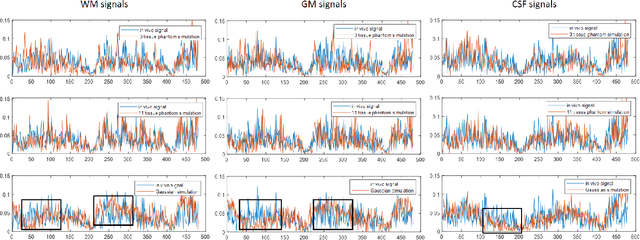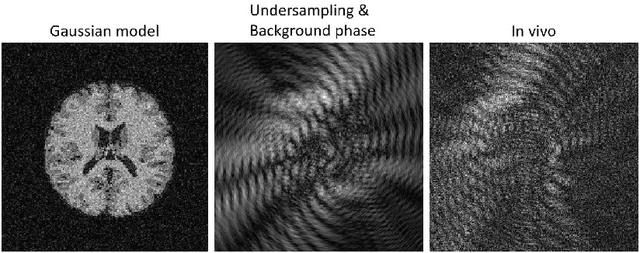Rasim Boyacioglu
A Fast MR Fingerprinting Simulator for Direct Error Estimation and Sequence Optimization
May 25, 2021



Abstract:MR Fingerprinting is a novel quantitative MR technique that could simultaneously provide multiple tissue property maps. When optimizing MRF scans, modeling undersampling errors and field imperfections in cost functions will make the optimization results more practical and robust. However, this process is computationally expensive and impractical for sequence optimization algorithms when MRF signal evolutions need to be generated for each optimization iteration. Here, we introduce a fast MRF simulator to simulate aliased images from actual scan scenarios including undersampling and system imperfections, which substantially reduces computational time and allows for direct error estimation and efficient sequence optimization. By constraining the total number of tissues present in a brain phantom, MRF signals from highly undersampled scans can be simulated as the product of the spatial response functions based on sampling patterns and sequence-dependent temporal functions. During optimization, the spatial response function is independent of sequence design and does not need to be recalculated. We evaluate the performance and computational speed of the proposed approach by simulations and in vivo experiments. We also demonstrate the power of applying the simulator in MRF sequence optimization. The simulation results from the proposed method closely approximate the signals and MRF maps from in vivo scans, with 158 times shorter processing time than the conventional simulation method using Non-uniform Fourier transform. Incorporating the proposed simulator in the MRF optimization framework makes direct estimation of undersampling errors during the optimization process feasible, and provide optimized MRF sequences that are robust against undersampling factors and system inhomogeneity.
 Add to Chrome
Add to Chrome Add to Firefox
Add to Firefox Add to Edge
Add to Edge